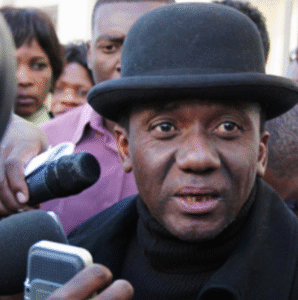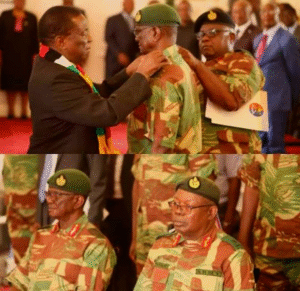MNANGAGWA’S 2030 PLAN: FAKE OPPOSITION BACKS EXTENDED RULE

Zimbabwe’s main opposition CCC secretary-general, Sengezo Tshabangu, has surprised many by supporting President Emmerson Mnangagwa’s bid to extend his rule beyond the constitutional limit of 2028 to 2030. During a visit to Mnangagwa’s farm in Kwekwe today, Tshabangu openly endorsed the idea, saying it could be allowed if it makes Zimbabweans happy.
Speaking to an audience of 300 Members of Parliament and senators at Precabe Farm in Sherwood, Tshabangu described himself as the CCC leader in parliament and said the opposition could accept Mnangagwa’s prolonged stay in power if it brings benefits to the people. His words were met with loud cheers and applause from the gathered MPs, including some Zanu PF leaders. Mnangagwa and the Speaker of Parliament, Jacob Mudenda, joined in clapping, showing their approval.
This statement follows recent talks where the opposition had already agreed to postpone the 2028 elections to 2030. The reason given was to allow Mnangagwa to complete his development projects and to push for reforms, showing significant political alignment between the opposition and Mnangagwa’s party.
The gathering at Precabe Farm showcased Mnangagwa’s agricultural activities, now being promoted as a model of modern farming in Zimbabwe. The farm has become Mnangagwa’s unofficial headquarters, where key political and government decisions are made. Today’s visit was led by Mnangagwa loyalists, including Mudenda, Zanu PF Chief Whip Pupurai Togarepi, and Tshabangu.
Mnangagwa, who now refers to himself as “Munhumutapa” – a title linked to ancient Shona emperors – has gained support from both his party and the opposition for his 2030 plan. He has even declared his birthday, September 15, as “Munhumutapa Day,” further solidifying his image as a historical leader. Mnangagwa’s 2030 agenda, however, is not without controversy. Vice President Constantino Chiwenga and his faction within Zanu PF strongly oppose the plan, accusing Mnangagwa of breaking past agreements.
Chiwenga and his allies expected Mnangagwa to step down after his first term in 2023, as per an arrangement following the 2017 coup that brought him to power. However, Mnangagwa’s decision to run for a second term – and now seek an extension beyond it – has fueled divisions within the ruling party. The Zanu PF conference held in Bulawayo last year endorsed Mnangagwa’s extended rule, but dissent within the party remains strong.
Mnangagwa’s 2030 plan involves changing Zimbabwe’s constitution. Current laws limit presidential terms to two, and any attempt to remove these limits requires a referendum. Additionally, another referendum would be needed to scrap the rule that prevents an incumbent president from benefiting from such changes. Despite these hurdles, Mnangagwa appears determined to push forward, relying on parliament and his political alliances to clear the way.
Chiwenga and his military-backed faction are firmly against these moves, creating significant tensions within Zanu PF. They view Mnangagwa’s actions as a betrayal of the power-sharing agreement that followed the coup. With factionalism and infighting intensifying, Zimbabwe faces an uncertain political future. The struggle between Mnangagwa and Chiwenga may escalate, potentially leading to a dramatic showdown.
Meanwhile, Mnangagwa continues to rally support. His farm in Sherwood has become a center for political activity, where strategies are discussed, and decisions are made. Today’s gathering marks another step in his campaign to stay in power until 2030. Whether through constitutional changes or political maneuvers, Mnangagwa is making it clear that he intends to remain in charge.
As the political drama unfolds, Zimbabweans watch closely. While some see Mnangagwa’s leadership as a path to stability, others view it as a power grab that undermines democracy. The coming years may determine whether Mnangagwa’s vision for 2030 becomes reality or if resistance within his party and the nation will stop him. For now, the stage is set for a high-stakes political battle that could shape Zimbabwe’s future.




